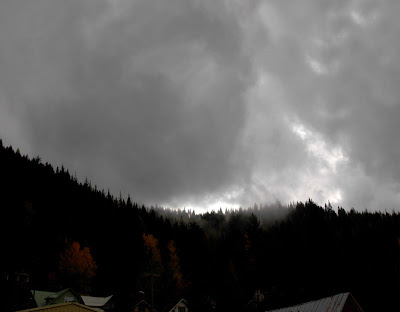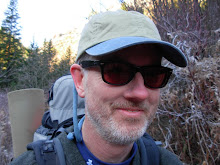Here’s a cautionary story for the researcher in Africa.
You walk into the national archives of a certain country with research authorization in hand—a document signed by a government minister, with your photo and signature, a short paragraph in French explaining your project in the blandest most unthreatening terms, and a stamp fixed to the top right hand corner to show you’ve paid the “official documents tax.” You spent an entire day across the capital city, in and out of a dozen government buildings in search of the office that issues that stamp, and ten days in all getting together the necessary elements for this piece of paper, which is a license to gather information, carefully laminated to preserve it in the heat, the dust, and the touch of many hands. Finally, everything is set and one afternoon you enter the archives, a gleaming six-story marble and concrete building just finished thanks to the “benevolent generosity” of Colonel Gaddafi, Africa’s self-proclaimed “Guide.” You are sweating in 105 degrees, grit eating at the folds of skin in your neck, suffering maybe from a stomach parasite, and walk up three flights of stairs to the office of le Directeur, where the air-conditioning is aggressively cold. He greets you amiably from behind a large wooden desk, offers you a seat, a glass of strong sweet tea, asks about your family and your health. He takes your authorization and sits back in his chair, reading, grunting softly, and frowning. Finally, he looks up at you and smiles broadly as he reaches across his desk to hand you back your paper. You lean forward to shake his hand and thank him. Then he speaks.
“Obviously, you’re a spy,” he says, folding his hands on the desk. “This is very sensitive information you are seeking. I cannot possibly offer you access to the archives.”
You sputter. “But, but, I have an authorization, approved by the minister—“
He interrupts, persistent with his smile and accusation. “Yes, but I am director here, not the minister, and you may very well be a spy. I think you are working for the Senegalese.”
You stare at him, you utter one word—“Senegal?"—and you begin to laugh.
The director’s smile vanishes, replaced by a frown and a question. “What are you laughing at?”
You begin apologizing profusely. You have no choice. You and your research project are in serious trouble.
* * *
This was my first meeting with Ali Ongoiba, director of the national archives in Mali, West Africa. Our conversation began what has become—thanks to an accusation, an unfortunate laugh, and an apology—a long collaboration on my research subject, the 177 arbitrary lines that make up Africa’s political borderlands. That meeting, before I ever touched an archival document, is a useful scene because it works as a metaphor for the borderland, where every inch of land and every morsel of information is guarded and challenged, open to reinterpretation and, therefore, endless suspicion.
So, gingerly, after apologizing to him for my rude behavior and disrespect, I asked him a question he had given me: “So, why would Senegal send spies to your archives?”
Tuesday, January 22, 2008
Wednesday, January 16, 2008
A Bit of Africa in the Rocky Mountains
One morning in 2002, in the last days of winter, I was poling through a bony forest of aspen and fir on a cross-country ski track I knew would break from the trees and circle miles of meadow. I’d trained and raced here in the 1970s at the base of a mountain outside Aspen, Colorado where I grew up, and across the road from the high school where I was a student. Now, after many years away, I followed the track across terrain reshaped by dozens of huge new homes. This is a ski town, after all, and it’s logical someone would preserve the course. The houses had great picture windows, wraparound decks, outdoor swimming pools, hot tubs, high stone walls and chimneys and they stood on land I always imagined as hunting and camping grounds for the Ute Indians who roamed the valley until miners, ranchers and soldiers began pushing them out 160 years ago. The land had been for me a vaguely wild place, the domain of bear, deer, coyotes, and, in winter, of skiers like myself. Sunlight still tumbled through branches, casting bright, fractured stains on snow just as I remembered.
Around a corner, a few hundred feet through the trees from one home, I heard voices whose intonations sounded like Bambara, a language of West Africa, where I’ve traveled and worked over three decades. I skidded to a stop and listened, peering through the trees at three coal-skinned African men on a deck in parkas and ski caps. One shoveled snow, carefully dumping rather than tossing each load off the deck, while the second man stood beside a blue plastic tub of cleaning liquids and rags set on the deck railing. The third, hands thrust in his jean pockets, sat on a bench, talking. I realized they were the help—“house boys” in resort town parlance—and I listened a few minutes, understanding nothing. I don’t know Bambara, but I speak French, the language of one of West Africa’s former colonial masters. I shouted, “Bonjour.” The men stopped talking and gathered at the edge of the deck to peer back through the woods at me, a tall figure in a blue Windbreaker and ski pants. They said nothing. I waved and shouted, “Assalamu Alaykum,” an Arabic peace greeting common in the Muslim world, which is to say, throughout West Africa. I hoped they’d invite me over but the men looked at one another, exchanged words and hurried inside the house. They left the plastic tub on the railing and the shovel lying in the snow. I stared after them, feeling foolish. The men were far from home in a place so different from their dry, impoverished homeland that my greetings must have made them suspicious. Maybe they thought I was an immigration officer. I skied on, touring the meadow and wondering how these men, in search of a better life and means to support families, had managed to leave their desert villages for a country so increasingly paranoid about its borders. I was curious about the risks they’d taken and how they’d survived. Two hours later I returned to that house, hoping to explain myself and welcome the Africans to the Rocky Mountains, where the sun is as dangerous as in the Sahara. But the deck was empty. Fearing trouble with their employer, I didn’t knock on the door.
Around a corner, a few hundred feet through the trees from one home, I heard voices whose intonations sounded like Bambara, a language of West Africa, where I’ve traveled and worked over three decades. I skidded to a stop and listened, peering through the trees at three coal-skinned African men on a deck in parkas and ski caps. One shoveled snow, carefully dumping rather than tossing each load off the deck, while the second man stood beside a blue plastic tub of cleaning liquids and rags set on the deck railing. The third, hands thrust in his jean pockets, sat on a bench, talking. I realized they were the help—“house boys” in resort town parlance—and I listened a few minutes, understanding nothing. I don’t know Bambara, but I speak French, the language of one of West Africa’s former colonial masters. I shouted, “Bonjour.” The men stopped talking and gathered at the edge of the deck to peer back through the woods at me, a tall figure in a blue Windbreaker and ski pants. They said nothing. I waved and shouted, “Assalamu Alaykum,” an Arabic peace greeting common in the Muslim world, which is to say, throughout West Africa. I hoped they’d invite me over but the men looked at one another, exchanged words and hurried inside the house. They left the plastic tub on the railing and the shovel lying in the snow. I stared after them, feeling foolish. The men were far from home in a place so different from their dry, impoverished homeland that my greetings must have made them suspicious. Maybe they thought I was an immigration officer. I skied on, touring the meadow and wondering how these men, in search of a better life and means to support families, had managed to leave their desert villages for a country so increasingly paranoid about its borders. I was curious about the risks they’d taken and how they’d survived. Two hours later I returned to that house, hoping to explain myself and welcome the Africans to the Rocky Mountains, where the sun is as dangerous as in the Sahara. But the deck was empty. Fearing trouble with their employer, I didn’t knock on the door.
Monday, January 14, 2008
Sunday, January 13, 2008
Subscribe to:
Posts (Atom)



